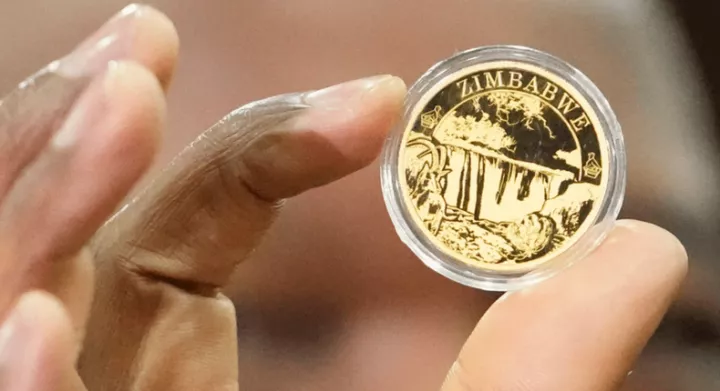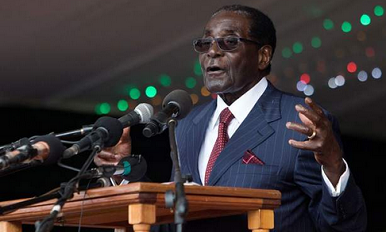
Zimbabwe has launched a new gold-backed digital currency to halt re-dollarization, which the administration of President Emmerson Mnangagwa worries could destroy the nation's already precarious economy.
The digital tokens, also known as Zimbabwe Gold (ZiG), which are primarily measured in milligrams, may be used for transactions by both private persons and businesses, according to the nation's central bank. In addition to being priced in US dollars and local currency, they may be purchased via banks in ZiG.
Bank customers may use their ZiG accounts to make purchases through point-of-sale terminals or make online payments.
Zimbabwe revealed gold coins in May to be used in peer-to-peer and peer-to-business transactions, as well as as a store of value, as the country's currency continued to lose ground against international currencies.
Holders of actual gold coins can swap or convert them into gold-backed digital tokens via the banking system. This recent intervention was met with a frigid response by economists and ordinary Zimbabweans, who predict a return to dollarisation.
Zimbabwe reinstated its currency in 2019 following a decade of dollarisation caused by Robert Mugabe's record-breaking hyperinflation.
The Zimbabwe dollar, on the other hand, has been fast losing value against international currencies, and this week it was trading at ZWL$5,252 to $1, with $1 fetching ZWL$10,000 on the popular secondary market.
To preserve the local currency during the height of the COVID-19 outbreak, the government implemented a multi-currency system, and officials currently estimate that 80% of transactions in the economy take place in US dollars.
According to the advisory company IH Securities, Zimbabwe's official currency rate fell to $1: ZWL$ 5,252,6558 in September, down from $1: ZWL$4,604,6233 the previous month.
"The parallel market experienced similar movements, with the rate increasing by 12.90 percent within the same period," IH Securities said in its latest bulletin. "There was a marked growth in Zimbabwe dollar liquidity in the market and we expect this upward trend to continue into the final quarter of the year, exerting persistent pressure on the exchange rate."

















Comments